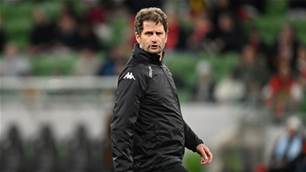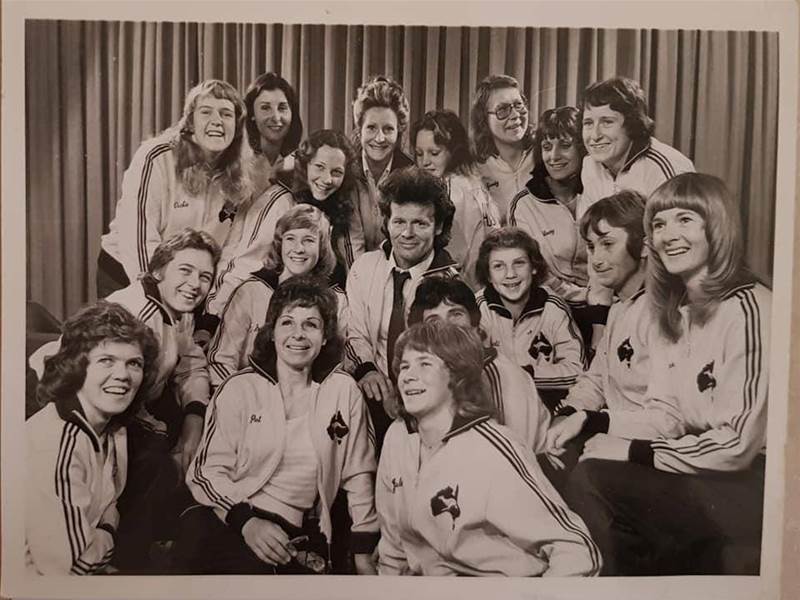Women’s football in NSW was on the cusp of something special in the 1960s. After being banned from playing in 1922, women who loved football decided they would push through the barriers rather than be suppressed by them.
While many men supported their cause, none was more dedicated than Joe O’Connor, the loving husband of the legendary Pat O’Connor. There are growing calls from Australian football icons of yesteryear to recognise O’Connor and have him inducted into the FFA Hall of Fame.
Pat would start playing the world game in 1966 - at the age of 24 - with the support, encouragement and coaching of her husband, and ended up in the Hall of Fame herself in 2001.
Former Matilda Cindy Heydon describes O’Connor as a much revered figure among women footballers of the time.
“He is the godfather of women’s soccer,” praises Heydon, who is a Hall of Famer herself. “He did the hard yards and pushed relentlessly to get women’s football off the ground.”
Heydon was first coached by O’Connor at St George Budapest as a 10-year-old, where the women’s team were undefeated for seven years.
“Sense of humour, drive, passion...absolutely should be in the Hall of Fame before a whole lot of other people,” insists Heydon.
O’Connor was a fine footballer himself but his coaching of Sydney Prague, St George and NSW women in the 60s and 70s made him an icon of the game. He was also the coach of the 1975 Australian XI team who played at the inaugural AFC Women’s Championships in Hong Kong.
Along with Pat, he helped start the NSW Metropolitan Ladies Soccer Association (MLSA) in 1967 and also the Australian Women’s National Championships in 1974.
Under O’Connor, NSW won the 1974, 1976 and 1977 National Championships.
“Joe propelled women’s soccer from a kick and giggle to a force to be reckoned with,” says Therese Dillon, who played in those powerful NSW title-winning teams. “He produced a standard of soccer that would be hard to beat by professional players today.
“He did this in an era when women’s soccer was not taken seriously and even amongst the soccer fraternity, he had to fight all quarters to promote women’s soccer.
“His determination to achieve the best for women’s soccer was amazing. He has a brilliant intellect, a great soccer brain and a great personality with an excellent sense of humour.
“Joe should be in the Hall of Fame already.”
Former Matilda Kim Coates, who was also coached by O’Connor, echos these sentiments.
“I believe Joe was one of the main driving forces in establishing a solid base for women's soccer in NSW and Australia,” says Coates, who won six caps for Australia.
“I loved his smile, sense of humour and how he helped instil in me and others the true meaning of being a part of a team and having a love of the game.
“Most definitely he should be in the Hall of Fame. I think he should have been inducted a long time ago.”
Sue Larsen, who was part of the 1975 Australian XI, NSW and the St George dynasty along with Heydon, Dillon and Coates, paid glowing tribute to her former gaffer.
“Joe was totally committed to the development of women's football,” she said. “He physically, emotionally, personally and financially invested in the development of the game he loved.
“His Irish humour and his knowledge of the game, his passion that he shared are characteristics I remember.”
Larsen made it clear she believed O’Connor should join his famous wife in the Hall of Fame.
“I believe Joe should be inducted into the Hall of Fame. Women's football would not have reached the level it has if not for those like Joe and Pat who planted the seed.
“You only had to see (at the recent legends reunion) how the people lined up to speak to Joe and Pat by Skype. Not just the St. George girls .... shows the respect that people hold for both of them and the input and sacrifices they made.”
Sadly and somewhat surprisingly, O’Connor is yet to be made a life member of Football NSW, despite his efforts in helping pioneer the women’s game.
While he, Pat and son Kirk moved to Western Australia in 1978, where they continued their football adventures, it was in NSW where they got the ball rolling and forged a path for women’s football.
Hopefully one day soon O’Connor will join Pat and take his rightful place in the FFA Hall of Fame, after all they are the godfather and godmother of women’s football.
Related Articles

'Timing not right': Montemurro's verdict on Matildas vacancy

Matildas: 'Fourth at the Olympics is honestly the worst place you could come'
.jpg&h=172&w=306&c=1&s=1)












